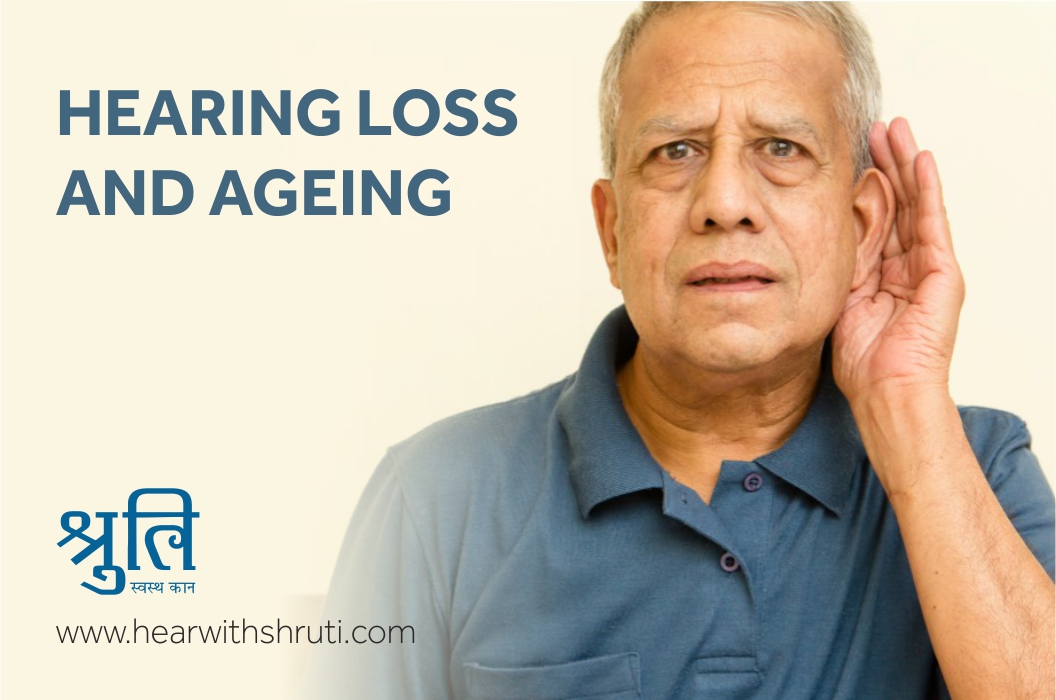Hearing Loss & Ageing

Age-related hearing loss (or presbycusis) is the gradual loss of hearing in both ears. Hearing loss due to aging is a common condition that impacts many older adults. Almost 1 in 2 adults over age 65 experience some degree of hearing loss.
Causes of Age-related Hearing Loss
Age-related hearing loss occurs gradually over time. Various changes in the inner ear can cause the condition. These include:
- changes in the structures of the inner ear
- changes in blood flow to the ear
- impairment in the nerves responsible for hearing
- changes in the way that the brain processes speech and sound
- damage to the tiny hairs in the ear that are responsible for transmitting sound to the brain
- diabetes
- poor circulation
- exposure to loud noises
- use of certain medications
- history of hearing loss
- smoking
Symptoms of Age-related Hearing Loss
Symptoms of age-related hearing loss typically begin with an inability to hear high-pitched sounds. You may also have difficulty hearing background noises or difficulty hearing others speak clearly.
Other symptoms that may occur include:
- certain sounds seeming overly loud
- difficulty hearing in areas that are noisy
- ringing in the ears
- turning up the volume on the television or radio louder than normal
- asking people to repeat themselves
- being unable to understand conversations over the telephone
- Always notify your doctor if you have any of these symptoms. They could be signs of other medical conditions and should be checked out by a doctor.
Hearing Loss Treatment
If you have symptoms of age-related hearing loss, see your doctor to diagnose your condition. The audiologist can perform a hearing test to help determine how much hearing loss has occurred. doctor may recommend:
- hearing aids to help you hear better
- assistive devices, such as telephone amplifiers
- lessons in sign language or lip reading (for severe hearing loss)
Preventing Hearing Loss
You may not be able prevent age-related hearing loss. However, you can take steps to keep it from getting worse. If you experience age-related hearing loss, try these tips:- Avoid repetitive exposure to loud sounds.
- Wear ear protection in places where there are loud sounds.
- Control your blood sugar if you have diabetes.
- Seek prompt help from your doctor if you develop symptoms of age-related hearing loss
At Shruti Hearing Loss Clinics, our highly skilled staff of physicians and care providers is dedicated to your personal care. We offer a wide array of services, treating everything from routine ear infections to complex head and neck surgery with the most sophisticated, state-of-the art treatments available today.
References
Hearing Loss: A Common Problem for Older Adults
I might have Hearing Loss! What to Do?
